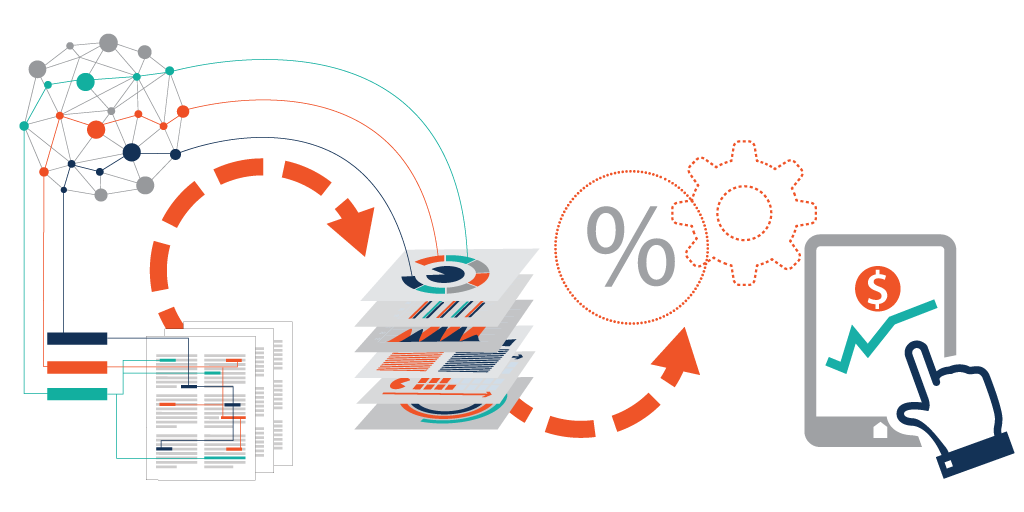
Big data analytics as a platform enables organisations to build strategies that help them drive meaningful changes in their decision-making process. Business enterprises and startups alike have massive amounts of organisational data that can be leveraged to study and derive useful insights. However, the actual act of coming up with ideas that matter, that is, converting the knowledge into action, is easier said than done and requires the expertise of a data scientist.
The advent of big data certification courses has enabled professionals to make the necessary changes that can make their business stand apart from the crowd. By providing insights backed by numbers and robust algorithms, here are some of the many instances of how big data analytics can help your business:
Know your customers in real-time:
One of the most significant factors of success in any startup or organisation is how well they know their customers. The more you know your customers, the more relevant products and services can be designed for them, and not to forget, effectively targeted ad campaigns can be designed as well. Earlier, customer information could only be gathered through questionnaires and focus groups; and by the time the results came in, the report was already outdated.
However, big data analytics has drastically improved the way organisations can get to know their customers. Data scientists can now map the entire preference-DNA of the customers. By making use of mobile data, buying habits, and web analytics, they deliver personalised insights about each consumer.
Knowing the customers well is the key to effectively sell them the products that matter to them. For instance, Amazon has perfected its recommendation engine by giving meaningful recommendations that are based on factors like what the user has purchased in the past, which items are there on their wish list, and which products they’ve rated.
Improve and innovate products and services:
While developing remarkable products is essential for a business to turn profitable figures, it is also important to know whether their products or services are being received well by the consumers. Gone are the days of consumer panels and lengthy discussions. Data scientists and analysts can now help organisations get a clearer understanding of precisely what the consumers think about their products. By designing algorithms that sift through blogs and social media, data scientists return results about what people are saying about a company’s product.
Far more effective than a conventional questionnaire, a career in big data analytics enables a person to measure in real-time the performance of products and services, thus allowing companies to immediately act upon product-related issues.
Big data and analytics enable organisations and startups not just to measure the sentiment consumers have regarding their product, but it can also differentiate consumers based on geographical regions and demographic groups.
Further, before organisations invest and start working on a particular product, data scientists can run simulations to predict how that product would perform for different consumer sections. Organisations can also use big data to improve upon existing products by studying data about previous product usage.
For example, automobile manufacturer Ford Motors has a lab in Silicon Valley that studies data from sensors present in over 4 million cars to improve upon its design and software.
Personalise the website in real-time:
Designing an attractive and user-effective website interface is of as much importance as the product’s packaging. The website is a reflection of a company’s image, and the ease of use could make all the difference when it comes to converting leads into customers. While earlier companies used to rely on A/B and split-tests to determine the best layout for their websites, big data analytics has significantly transformed the processes, and for the better. By observing web metrics in real-time, organisations can optimise the look and feel of their websites in a manner that appeals to individual user preferences.
This means that companies can now deploy personalised web pages of the same website to millions of different customers accessing the site at the same time. Data scientists can also optimise websites in a manner that they can alter the prices offered. By designing algorithms that react to competitors and events taking place in real time, prices can be automatically adjusted on websites, thus giving increased sales and profits to companies.
Determine organisational risks beforehand:
Arriving at a figure of how much risk a company faces is one of the most crucial and tricky aspects of running a successful business. The risk factor of potential customers or suppliers is usually arrived at by placing them in either low or high-risk categories. One miscalculation in either scales can not only cause a loss of revenue but can also cause severe damage to the company. Big data analytics makes this process more thorough by assigning a risk category to each supplier or customer by taking into account the analysis based on past and real-time data.
By using predictive analytics, data scientists can determine how much money a customer or client is most likely to cost in the future. This is of particular importance in the insurance industry, where the stakes are much higher. However, the risks are mitigated using big data techniques like regression analysis, social data aggregation, text analysis, and sentiment analysis. These techniques allow data scientists to create a 360-degree profile of the customers, thus helping data scientists to accurately assess the risk factor associated with each customer.
The use cases mentioned above are but a small part of the endless ways in which a career in big data and analytics can help organisations and startups in improving their functions. Whether established or developing, every business has different needs when it comes to improving its operations and services, and big data analysts are experts at moulding solutions that precisely fit an organisation’s needs. In a business economy that has cutthroat competition at every stage, big data analytics provides startups and organisations with the much-needed competitive edge that allows them to stay ahead of the curve.


